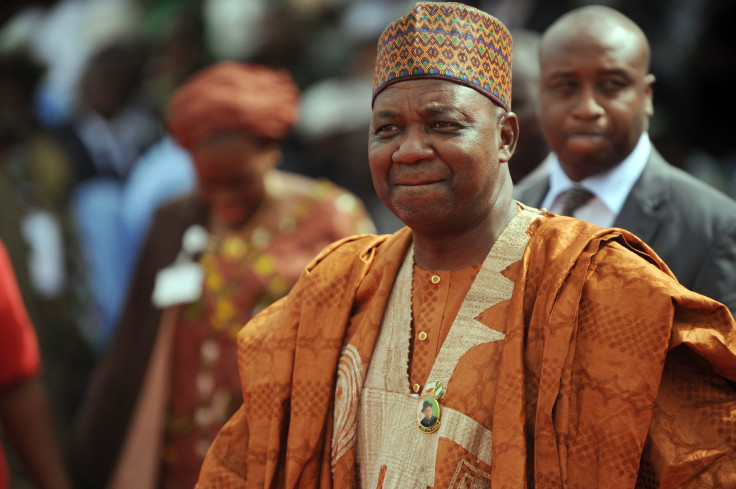Nigeria's Anti-Corruption Agency Raids Office Of Goodluck Jonathan's Vice President

The office of Nigeria’s former vice president was raided Saturday by the Economic and Financial Crimes Commission (EFCC), a source at the agency told Reuters on Tuesday. Namadi Sambo is the latest high-profile official who served under previous president Goodluck Jonathan to be investigated for corruption.
"The office of the former vice president was raided by officials [at] the EFCC in relation to an ongoing investigation. In the process, some useful documents were found," an unnamed source at the EFCC said.
Some of the documents seized during the raid in the Nigerian capital included bank statements and contracts, another source told BBC News. Sambo, who served as Jonathan’s deputy between 2010 and 2015, has not been arrested and is currently not facing any charges. The ex-vice president has not yet commented on the raid and he was believed to be out of the country at the time.
A number of officials in Jonathan’s administration have come under scrutiny since President Muhammadu Buhari took office last May and launched an anti-corruption drive. An ongoing investigation by the EFCC is probing how more than $2 billion earmarked for the procurement of arms was allegedly diverted by the office of former National Security Adviser Sambo Dasuki and other ex-military officials, who are facing corruption charges. Dasuki denies any wrongdoing.
Buhari has vowed to trace and recover what he has called “mind-boggling” sums of money stolen from Nigeria’s lucrative oil sector, the scale of which was revealed in a report published in August last year by a New York-based international governance watchdog. The report alleges the state-run Nigerian National Petroleum Corp. withheld about $12.3 billion from the sale of 10 million barrels of oil over 10 years. Buhari, who appointed himself as the petroleum minister in September, has fired the entire board and executive directors of the oil company and hired a Harvard-educated lawyer as the managing director to lead reforms.
A new report released Monday by global professional services powerhouse PricewaterhouseCoopers said corruption in Nigeria could cost the country up to 37 percent of its gross domestic product within the next 14 years. That’s a loss of around $1,000 for every person in the nation and that number could leap to almost $2,000 by 2030 if corruption is not dealt with immediately.
© Copyright IBTimes 2025. All rights reserved.





















